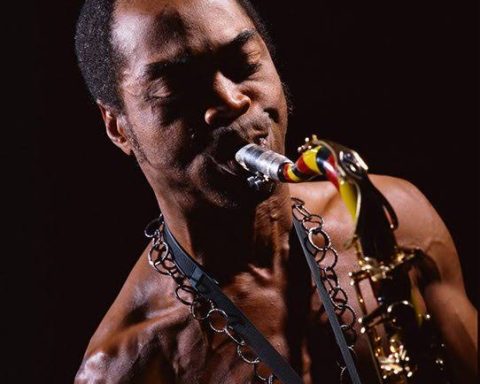In the past, the words “meal plan” and “wellness coach” might have sounded like luxuries reserved for Hollywood celebrities or elite athletes. But in Nigeria today, they’re becoming part of a growing business movement, one where health meets hustle, and young entrepreneurs are finding new ways to turn wellness into wealth.
Across Lagos, Abuja, Port Harcourt, and even mid-sized cities like Uyo and Enugu, fitness coaches, nutrition consultants, and wellness influencers are building loyal client bases, launching subscription models, and selling customized meal plans via WhatsApp, Instagram, and wellness apps. These so-called FitPreneurs represent a new wave of entrepreneurs reshaping the health economy and cashing in on Nigeria’s growing appetite for fitness and food reform.
Join our WhatsApp ChannelHealth Is the New Hustle
The wellness boom in Nigeria didn’t happen overnight. It’s the product of several overlapping forces: a rising middle class, a digitally connected youth population, and growing public awareness of lifestyle-related illnesses like diabetes, hypertension, and obesity.
With gyms springing up in urban neighborhoods and social media flooded with transformation stories, weight loss challenges, and “clean eating” hashtags, demand for personalized guidance has skyrocketed.
Enter the FitPreneur, fitness-savvy individuals who may not always hold formal degrees in dietetics, but combine lived experience, informal training, and digital tools to offer practical, marketable solutions. Services range from ₦10,000 to ₦50,000 monthly, depending on the level of customization, access, and support provided.
Some available offers in fitness centres are:
Calorie-counted meal plans for weight loss or muscle gain
One-on-one virtual coaching via Zoom or Telegram
Pre-cooked, portioned meals delivered weekly
Grocery shopping guides with recommended local alternatives
Wellness accountability groups with hundreds of paying members
And unlike traditional nutrition clinics, these services are often accessible, culturally relevant, and marketed like lifestyle brands.
Mr Dike Ifeanyi, a physiotherapist who runs a fitness centre in Ikeja, Lagos, explained that “a monthly subscription gives one access to the general fitness routine the instructor leads in the gym, which can be once or twice a week, depending on the client’s availability.” He went further to highlight the importance of carrying out strict meal plans to achieve healthy results a timely manner.
The Business Model: Low Overhead, High Personalisation
What makes FitPreneurship so appealing, especially to millennials and Gen Z, is the low barrier to entry. A smartphone, a personal transformation story, and a digital payment platform are often enough to get started.

The costs are minimal. Most coaches run their businesses from home, use Instagram or Canva for branding, and rely on DMs or link-in-bio tools for client onboarding. Google Docs and WhatsApp handle meal plan delivery. Subscription tiers are priced to scale:
₦5,000–₦10,000 for basic meal guides
₦20,000–₦30,000 for personalised coaching
₦50,000+ for full access to weekly check-ins, recipes, and exercise support
Incomes vary, but some FitPreneurs reportedly earn ₦200,000–₦500,000 monthly, especially those who bundle coaching with physical products, like detox teas, smoothie packs, or branded water bottles.
Favour, a gym rat in the Jakande area of Lagos, spoke on the benefits of engaging in fitness activities, saying: “Everyone should have a health or body goal that is set to be achieved at a given duration or period, so as to keep track of progress.”
“With a personal instructor, the exercise routines are tailored to achieve the set goals, and this is mostly paid for separately from the monthly subscription. Depending on your agreement and payment plan with the instructor, you can get trained every day or not,” she added.
Nutrition Meets Content Creation
What sets this new wave of wellness professionals apart is their savvy use of content. They don’t just sell health, they sell stories. Before-and-after photos, client testimonials, behind-the-scenes meal prep videos, and motivational reels create a constant loop of visibility and trust.
On Instagram and TikTok, FitPreneurs share calorie counts of local dishes, demystify portion sizes, and show how to “clean up” traditional Nigerian meals. They speak in relatable terms, “fitfam” slang, pop culture humor, and attract followers from both the diaspora and the domestic market.
Some even build online communities through Telegram groups or paid Facebook forums, offering daily check-ins, peer support, and challenges that keep engagement (and renewals) high.
Challenges in the FitPreneur Economy
Despite the promise, not everything is smooth. Lack of regulation is a growing concern. Anyone can claim to be a wellness coach, which sometimes leads to unsafe or unverified advice being shared with vulnerable clients.
There’s also the issue of scalability. Many FitPreneurs are solo operators, and growth is limited by time and capacity. Burnout is common. Those who succeed often do so by developing passive income streams, like eBooks, recorded meal-planning webinars, or selling rights to content templates.
Lastly, affordability remains a barrier. While middle-class Nigerians are driving demand, the lower-income market, where poor dietary habits are most entrenched, is often priced out.
The Bigger Picture: An Industry in Motion
Despite these challenges, the rise of FitPreneurs marks a significant shift in how Nigerians access and engage with health information. It’s a bottom-up, grassroots wellness movement, powered by peer-to-peer trust, relatability, and entrepreneurial grit.
READ ALSO: How Smart Nigerians Are Winning On Healthy Eating
Major fitness platforms and health tech startups are beginning to take note, partnering with local coaches for affiliate marketing, brand ambassadorships, or even onboarding them into broader service platforms. The synergy is growing.
Government and formal institutions are yet to fully recognize or regulate this space. But one thing is clear: wellness is no longer a luxury service; it’s a booming micro-economy, and FitPreneurs are right at its heart.
Health as a Viable Career Path
As Nigeria grapples with rising health concerns and an overstretched healthcare system, the role of wellness entrepreneurs will become even more vital. The FitPreneur may not replace certified nutritionists or doctors, but they are filling a critical gap in preventive health, at scale, at speed, and with cultural fluency.
For aspiring entrepreneurs, it’s a call to action: health is not just a lifestyle, it’s a business. And in the digital economy, the most valuable currency is impact.
Amanze Chinonye is a Staff Correspondent at Prime Business Africa, a rising star in the literary world, weaving captivating stories that transport readers to the vibrant landscapes of Nigeria and the rest of Africa. With a unique voice that blends with the newspaper's tradition and style, Chinonye's writing is a masterful exploration of the human condition, delving into themes of identity, culture, and social justice. Through her words, Chinonye paints vivid portraits of everyday African life, from the bustling markets of Nigeria's Lagos to the quiet villages of South Africa's countryside . With a keen eye for detail and a deep understanding of the complexities of Nigerian society, Chinonye's writing is both a testament to the country's rich cultural heritage and a powerful call to action for a brighter future. As a writer, Chinonye is a true storyteller, using her dexterity to educate, inspire, and uplift readers around the world.
















